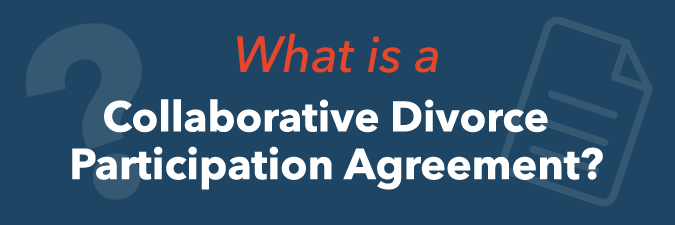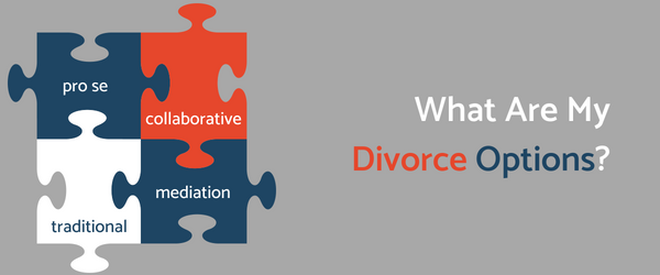|
Have you heard about it, collaborative divorce? While couples have been divorcing for ages, this process is relatively new by comparison. Collaborative Divorce officially began in the late 90’s in Minnesota and California. Almost 20 years later and collaborative divorce is now an option available to most across the U.S. What Is Collaborative Divorce? Collaborative divorce differs from traditional divorce and provides an alternative process for parties seeking an out-of-court agreement. The idea of collaborative divorce is to promote agreement and free exchange of information through private negotiations. In collaborative divorce, each party hires an attorney and all four work together in a cooperative, non-adversarial process with a mutual goal of reaching a fair settlement of all issues. The clients and lawyers sign agreements limiting the lawyers’ work to settlement negotiations and require the lawyers to withdraw if a court is asked to decide any of the issues. The parties and attorneys communicate and negotiate directly with one another in structured four-way settlement meetings. Binding commitments are made by both parties and their respective attorneys to voluntarily disclose all financial and other relevant information, and to proceed respectfully and in good faith in settlement negotiations. In order to succeed in collaborative divorce, both clients must be willing to hear the interests and concerns of the other spouse and be able to move forward respectfully. What Are the Benefits of Collaborative Divorce? There are a number of advantages to choosing collaborative divorce, here are just a few:
Commitment to an Out-of-Court Settlement Agreement If you find yourself seeking divorce options, arm yourself with as much information as possible. Whatever your choice, it’s a very personal one and collaborative divorce requires commitment to a settlement agreement. Those considering a collaborative divorce must be willing to resolve all related support, custody, and property disputes in a constructive and reasoned atmosphere. As previously mentioned, both parties must agree that they will not go to court and if anyone wants to do so, both attorneys must withdraw.
Diane S. Diel practices family law including collaborative divorce and mediation. She brings practical problem-solving skills to your family matter and seeks creative and respectful solutions. For questions or to schedule a consultation, please contact us.
0 Comments
Collaborative divorce provides an alternative process for parties seeking an out-of-court agreement. Collaborative divorce promotes agreement and free exchange of information through private negotiations. Each party hires an attorney and all four work together in a cooperative, non-adversarial process. Divorcing couples with a mutual goal of reaching a fair settlement are appropriate for the collaborative process. You may have recently decided this is the route for you — and your spouse agrees; but what exactly does it mean to sign a Collaborative Divorce Participation Agreement? The Commitment: Signing a Collaborative Divorce AgreementA Collaborative Divorce Participation Agreement (“PA”) is a written agreement by which both parties commit to work together towards a mutually beneficial outcome. The key element of a Collaborative Divorce Participation Agreement is that both parties agree that they will not ask a court to decide a disputed issue. If anyone does so, both attorneys must withdraw. In this type of agreement, the parties and attorneys communicate and negotiate directly with one another in structured four-way settlement meetings. The Participation Agreement is a contract made by both parties to voluntarily disclose all financial and other relevant information, and to proceed respectfully and in good faith in settlement negotiations. In order to succeed in Collaborative divorce, both clients must be willing to hear the interests and concerns of the other spouse and be able to keep discussions respectful. For Collaborative Divorce to work, each party must agree to:
Typical Code of Conduct in the Collaborative Divorce Process |
AuthorDiane S. Diel practices Family Law including Collaborative Divorce and Mediation in Milwaukee, WI. Archives
January 2023
Categories
All
|




 RSS Feed
RSS Feed